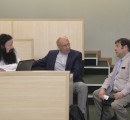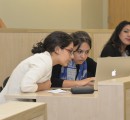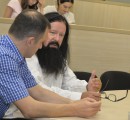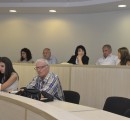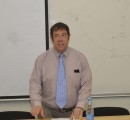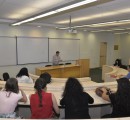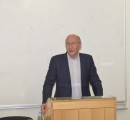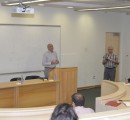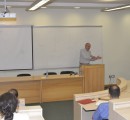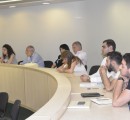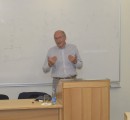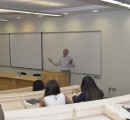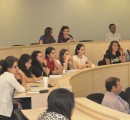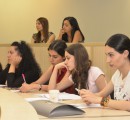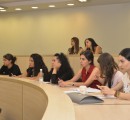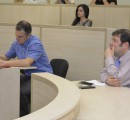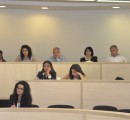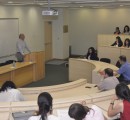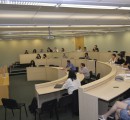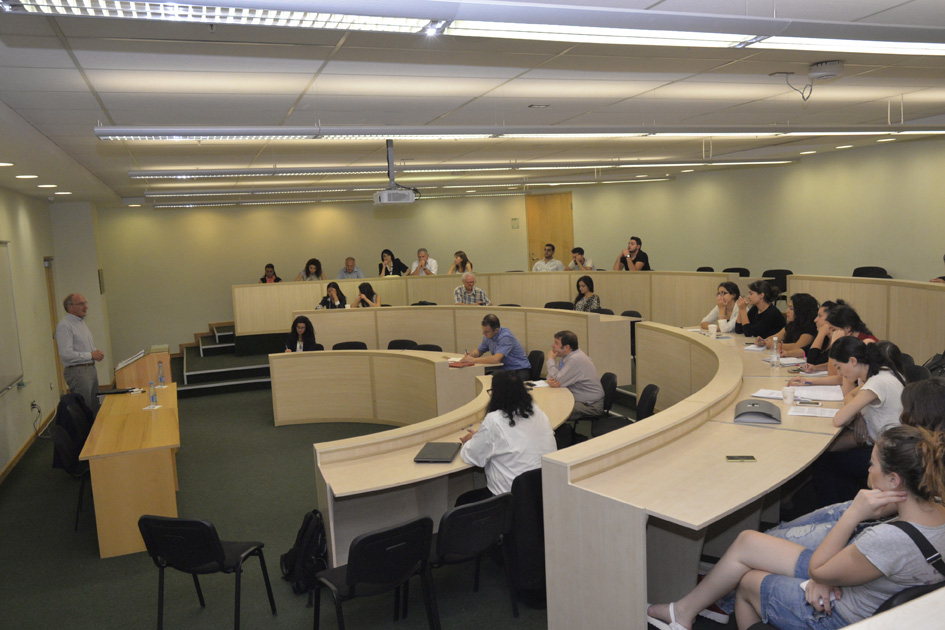
The Legacy of Fridtjof Nansen – Explorer, Scientist, Diplomat, and Humanitarian
3 min readYEREVAN, Armenia – On September 28, 2015, the American University of Armenia (AUA) College of Humanities and Social Sciences (CHSS) held a lecture entitled ‘The Legacy of Fridtjof Nansen,’ with speaker Inge Eidsvåg, a longtime researcher at the Nansen Academy in Norway. The lecture focused on the origins of the academy, the pedagogical philosophy, and particularly the development of their work on dialogue in war zones and for peace education. The lecture also included a presentation by Steinar Bryn, Senior Advisor of the Nansen Center for Peace and Dialogue.
Eidsvåg and Bryn shared their impressions of Armenia, stating that, despite having been there for only one and a half days, they were impressed by the country. After visiting the Genocide Museum they were stricken by a realization that humankind has not learned from its experience throughout history. They also commented on how hospitable the Armenian people are and how pleased they were that Fridtjof Nansen is fairly well known in Armenia compared to in other countries.
The lecture told the story of Fridtjof Nansen’s incredible ideas and adventures. Nansen, a Norwegian explorer, scientist, diplomat, and humanitarian, crossed Greenland on skis in 1888, after which he became very popular in Norway. He then led a crew on an expedition to the North Pole. Despite the group failing to reach their destination, they achieved a record northern latitude and Nansen was lauded as a hero for bringing the entire crew back to Norway safely.
The speakers also discussed one of Nansen’s most outstanding initiatives – issuing the Nansen passport. After the First World War, thousands of refugees were spread across Europe. Nansen went to the League of Nations with a suggestion that all refugees needed passports and that they should be granted in his name instead of having them issued by the states. Nansen personally convinced 52 governments to recognize the Nansen passport as valid. Approximately 450,000 Nansen passports were provided to stateless people and refugees who needed travel documents but could not obtain them from a national authority. Following Nansen’s death in 1930, the passports were handled by the Nansen International Office for Refugees within the League of Nations, which received the Nobel Peace Prize for its efforts to establish the Nansen passports.
Nansen also travelled to Armenia. In 1925, the League of Nations appointed Nansen to organize the settling of Armenian refugees. He went to Armenia to investigate the possibilities of organizing irrigation which would allow the creation of conditions for resettling Armenian refugees from Turkey to Eastern Armenia. Nansen worked in close cooperation with the Soviet committee for the improvement of the land, which was situated in Yerevan. He reported the results of his trip to the League of Nations. Although the League failed to implement its plan in general, he still managed to resettle 10,000 people in Armenia and about 40,000 in Syria and Lebanon. However, Nansen considered it his personal failure that around 50,000 Armenian refugees could not return home. His trip to Armenia was described in the book “Gjennom Armenia” (“Across Armenia”), published in 1927.
Eidsvåg added that if Nansen was alive today and was witness to the current refugee crisis affecting the world, it is clear that he would have acted.
The Nansen Academy is a folk high school in Lillehammer, Norway. It was established in 1938 by Kristian Vilhelm Koren Schjelderup, Jr., Anders Platou Wyller and Henriette Bie Lorentzen and named after Fritjof Nansen. Founded as a humanist and anti-totalitarian institution, it was closed and dissolved during the occupation of Norway by Nazi Germany, after only one year of existence (its first school year started in 1939). It resurfaced after the occupation, in 1946.
“The difficult is what takes a little time; the impossible is what takes a little longer”.
Fridtjof Nansen
Founded in 1991, the American University of Armenia (AUA) is a private, independent university located in Yerevan, Armenia and affiliated with the University of California. AUA provides a global education in Armenia and the region, offering high-quality, graduate and undergraduate studies, encouraging civic engagement, and promoting public service and democratic values.


